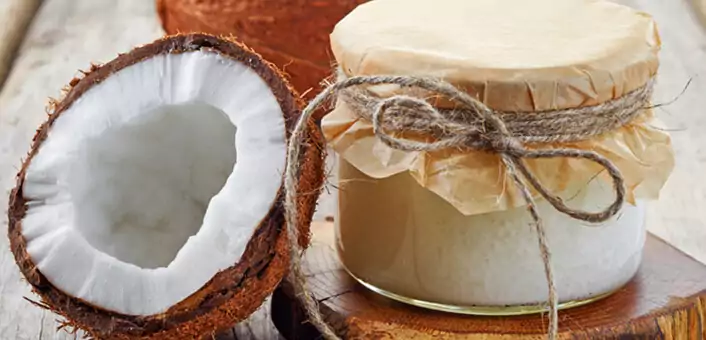
Mental Health
What’s The Connection Between Gut Health And Depression
Jul 23, 2017During my internship in medical school, I came across a shocking case of antidepressants gone wrong. Alice, a 29-year old lawyer, had been diagnosed with anxiety and depression in her late teens. She was on Selective serotonin re-uptake inhibitors (SSRIs), a class of antidepressants, for around a decade. The SSRIs kept her most complex symptoms of depression in check, and allowed her to lead a normal life. In spite of her condition, she had a successful career and a normal married life.
Trouble began when she decided to have children. Since SSRIs are contraindicated in pregnancy, when she tried to go off them she suffered from flashing images of horror and sudden urges of self-harm. The withdrawal symptoms were so unbearable, she had almost given up the desire of becoming a mother. The consulting doctor had advised her to undergo therapy while attempting to gradually lower the dosage of SSRIs. And that seemed like a logical end of the discussion.
I could not help but wonder how much the little pill had altered her brain chemistry over the course of ten years. The mere fact that despair and suicidal thoughts actually increased when the brain was trying to ‘adjust’ to the withdrawal of antidepressants was a clear warning sign of their dangers.
Mental Health Is Closely Linked to Physical Chemistry
For centuries, an artificial distinction has been made between mental and physical health. This rather unsuccessful approach has resulted in millions of people getting addicted to antipsychotics and antidepressants without realizing the long-term consequences of these drugs.
In reality, depression and anxiety are metabolic brain disorders. Metabolic disorders happen when there are abnormal chemical reactions in the body. In order to deal with mental disorders without putting the brain’s natural capacities at risk, it is important to understand how the brain interacts with the other parts of the body through bio-chemical reactions.
The Gut: It’s Really Your Second Brain!
During the development of the fetus into a full-grown baby, there is a division of various tissues. Interestingly, the brain and the gut are born out of the same type of tissue. This is why the gut has its own nervous system (known as enteric nervous system), consisting of 200-600 million neurons, and thus is often referred to as the ‘second brain’. The gut communicates with the brain through these neurons in the gut wall, and also through the vagus nerve, which is the tenth nerve that arises directly from the brain and extends all the way from the brain stem into the abdomen and beyond.
This interaction happens through neurotransmitters such as serotonin, dopamine, and GABA. Neurotransmitters are chemical messengers that pass information between nerve cells. Serotonin is known to regulate moods and sleep, pain sensitivity, and appetite. 90% of serotonin is produced and stored in the gut.
Due to this strong gut-brain connection, very often, the gut is the first place in the body where a strong mental reaction translates into a physical one. Think “butterflies in the stomach”. Other common signs of this connection are diarrhea before an exam or a ‘pit’ in the stomach upon hearing difficult news. The communication between the gut and brain is called the gut-brain axis.
Can Bacteria Determine Your Mood? Surprisingly, Yes!
Of late, the role of bacteria in the gut has got a lot of attention from the scientific community. Be it diabetes, autoimmune diseases, hormonal imbalances and even cancer, it is being acknowledged that bacteria play an important role in causing, worsening & reversing chronic diseases. Not surprisingly, depression and anxiety are no exception.
Research has shown that gut bacteria are responsible for producing and delivering several chemicals that influence the central nervous system. For this reason, they play a key role in the development of major diseases of the nervous system, such as autism, Alzheimer’s, and schizophrenia.
Bacteria also play an important role in regulating the immune system, the bulk of which lies in the gut. When the cells of the gut sense a potential threat, it leads to a chain of events resulting in a protective mechanism called inflammation. When the gut (or any other part of the body) is in a state of inflammation, a number of chemicals are released to fight off unwanted invaders or substances. If inflammation becomes chronic (meaning, if it lasts for too long), this ‘high alert’ can influence our moods too.
Inflammation can occur when poor gut flora leads to poor digestion and a confused immune system. It can also be caused by foods such as gluten, legumes, dairy, GMOs, vegetable oils, artificial sweeteners, and sugars.
Because of the gut-brain axis, this inflammation and its chemical army can travel to the brain, causing psychological and psychiatric harm. Blood tests and MRI scans of the brains of people with depression have also shown markers of inflammation.
It is no surprise that depression is commonly observed among people eating pro-inflammatory foods.
Foods and Supplements That Love The Gut And The Brain
The production of neurochemicals by bacteria allows for constant communication between the gut and the brain. This means we have to take proper care of our gut as a first step to mental health. An abundance of bad bacteria can, in some, cause altered moods, inability to cope with stress, chronic fatigue, disinterest in life, and even suicidal thoughts. Skipping meals or eating lots of sugar are other examples of poor dietary choices that are seen before the onset of depression, as well as during it.
Our gut and its kingdom of bacteria helps in proper absorption of nutrients. A lack of essential vitamins, minerals, and omega-3 fatty acids has shown to contribute to the development of depression and anxiety. Within nutrients, fats are the mainstay in mental health. This is because among all the cells, only fat cells are able to cross the blood-brain barrier (a layer of cells that protect the brain). When our diets are more skewed towards Omega 6 fatty acids (such as in commercially produced meat) rather than omega-3 (such as is found in organic fish) it impacts our mental health negatively. Healthy fats found in coconut oil, butter, ghee, fish, krill oil, and lard not only maintain brain health, but also nurture good bacteria.
Additionally, the use of probiotics containing the strains Lactobacillus rhamnosus, Lactobacillus helveticus, Lactobacillus plantarum, Bifidobacterium infantis, and Bifidobacterium longum have shown to improve symptoms of depression and anxiety. That is one of the reasons why you should always consult with a qualified practitioner if you have an ailment and want to use probiotics as a supplement.
A carbohydrate avoidance diet is not recommended unless you have a condition that specifically needs you to stay off carbs; healthy carbohydrates such as bananas, sweet potatoes and yams are required for adequate energy levels. More importantly, carbohydrates are responsible for driving a chemical called tryptophan past the blood brain barrier. Trypthopan is an amino acid, which helps serotonin (also known as “the happy molecule”) enter the brain.
Studies have also shown that supplements containing phenyl alanine and/or tyrosine enhance alertness and arousal. Methionine can also assist in the production of neurotransmitters in the brain.
GAPS Diet For Depression
Dr. Natasha Campbell-Mcbride, MD, has pioneered the Gut and Psychology Syndrome (GAPS) diet, which cured her own child of autism. Subsequently, the diet has been successful in the treatment of depression, schizophrenia, ADD/ADHD, dyslexia/dyspraxia. It has also been successful in a number of bowel diseases, autoimmune conditions, menstrual disorders, and allergies.
The main healing component of the GAPS diet is homemade bone broth. Other elements of this diet are boiled & easily digestible meat and vegetables, fermented foods, and the avoidance of grains and sugars. One of the benefits of the GAPS diet is the sealing of the mucosal lining of the gut. This helps in proper absorption of nutrients and starving out bad bacteria whilst establishing healthy flora of the gut. An immediate consequence of the GAPS diet is an improvement and stabilization of moods.
Final Thoughts
A healthy diet may sound like a wishful solution for depression. Trust me when I say this as a medical doctor: modern science has, till recently, severely underestimated the connection between gut health and depression. On the other hand, antidepressants, in spite of their side effects, have been projected as the only hope for depression. It’s high time we start valuing the role of the gut in brain health, and reduce our dependence on antidepressants.
A note of caution: Supplements may often be needed at doses higher than the Recommended Dietary Allowance (RDA), to have therapeutic effect. They should be taken only after consulting a holistic physician dealing with mental disorders. Also, never stop any prescription medication, especially brain medication cold turkey. Work with a functional medicine practitioner to fix your diet and your gut and gradually taper off your medications. Wish you vibrant health!




